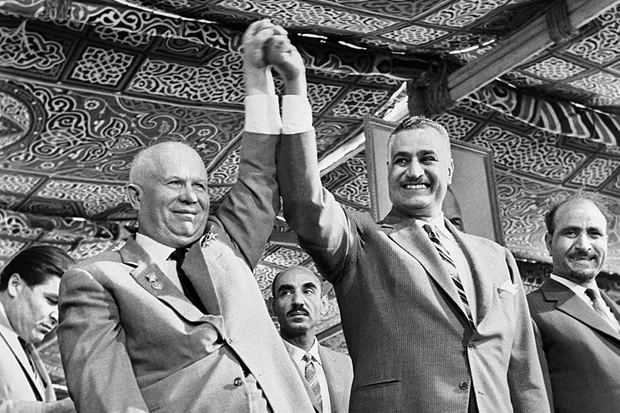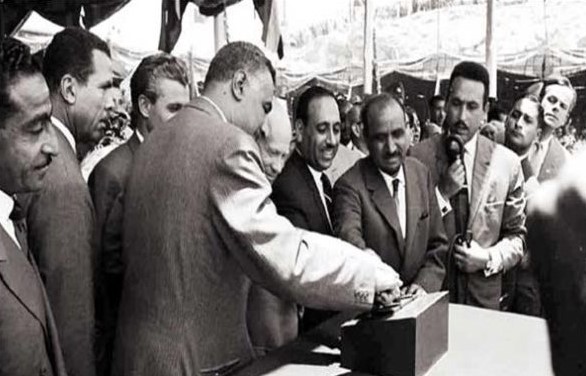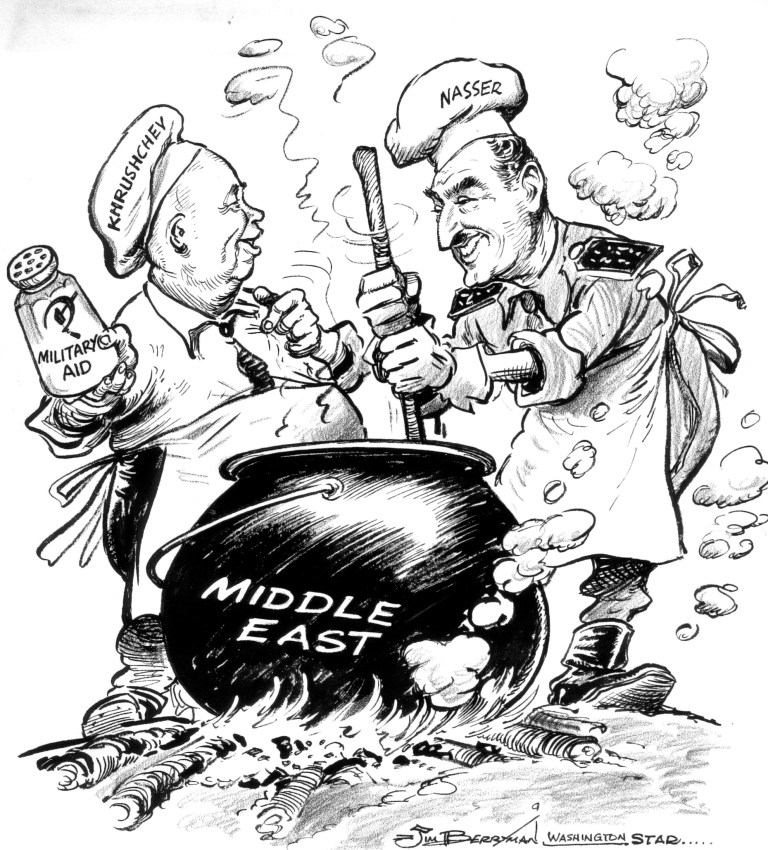Resolving the Suez Crisis:
Successful Debate & Diplomacy in the Cold War
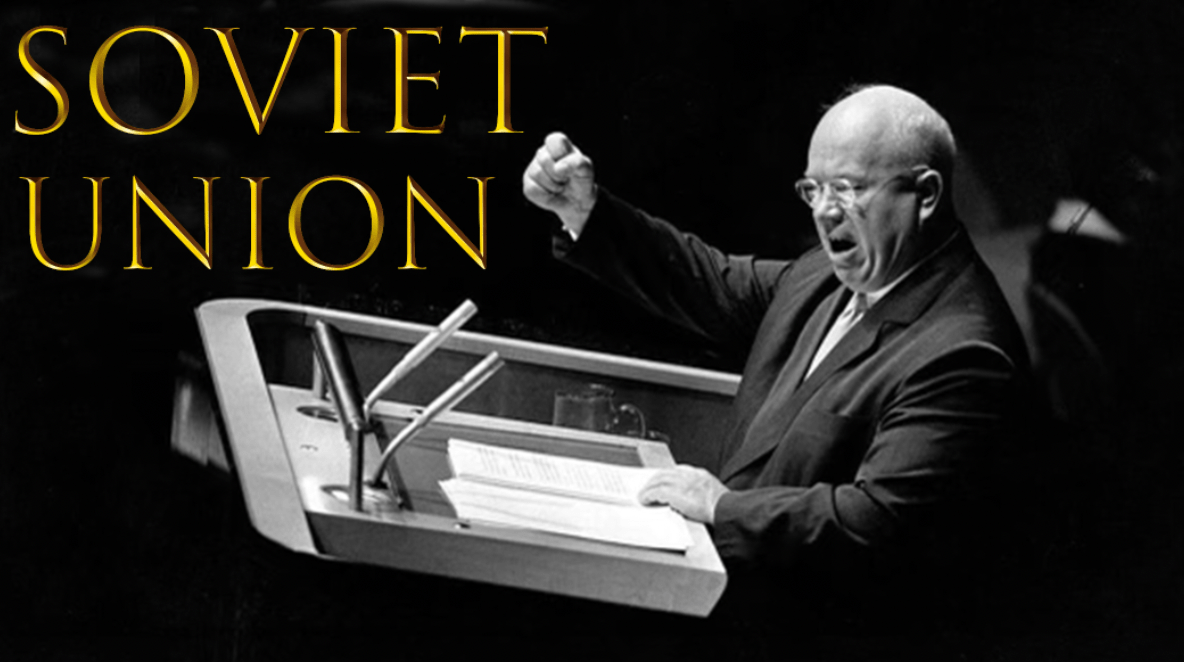
Soviet leader Nikita Khrushchev giving a speech to the UN, NPR.
Soviet Interference
Under Stalin, the Soviet Union was unwilling to stake credibility on unpredictable, developing nations. However, the USSR’s acquisition of nuclear weapons enabled them to further influence developing nations, undermining former world powers. Additionally, the Egyptian-Czechoslovak arms deal for 83 million dollars worth of weaponry led to other USSR involvement in Egyptian affairs, such as providing funds for the construction of the Aswan Dam.
“If my son were to come to me to volunteer to fight for Egypt, I would encourage him to go.”
~ Khrushchev after sending military aid to Egypt, Kissinger Diplomacy.
Soviet Diplomatic Success
"The Soviet Union and the U.S.A. are permanent members of the Security Council and the two great Powers which possess all modern types of arms, including atomic and hydrogen wéapons. We bear particular responsibility for stopping war and re-establishing peace and tranquility in the Middle East... If this war is not stopped, it contains the danger of turning into a third world war."
~ Nikolai Bulganin, Marshal of the Soviet Union, in a letter to Eisenhower, Eden, Mollet, and Ben-Gurion, Stanford
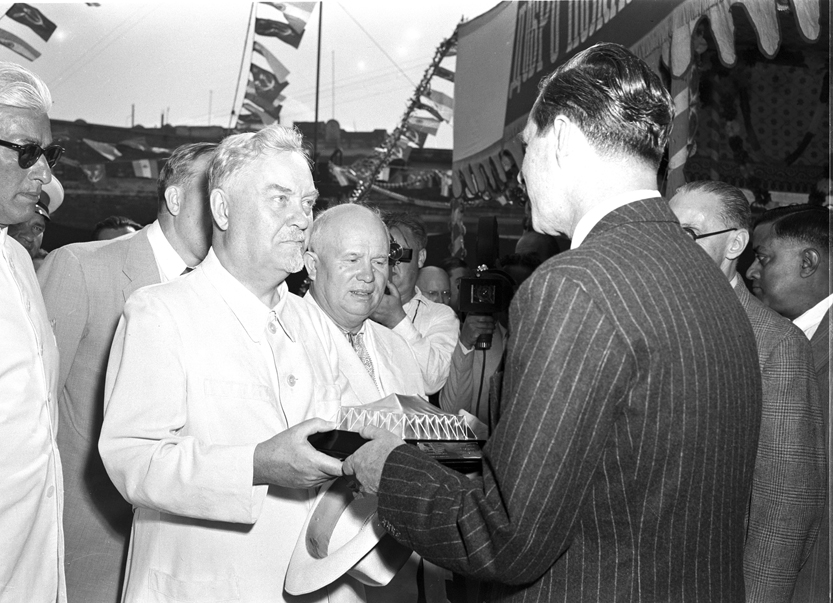
Nikolai Bulganin (left) with Khrushchev (right) in India, 1955, Wikipedia.
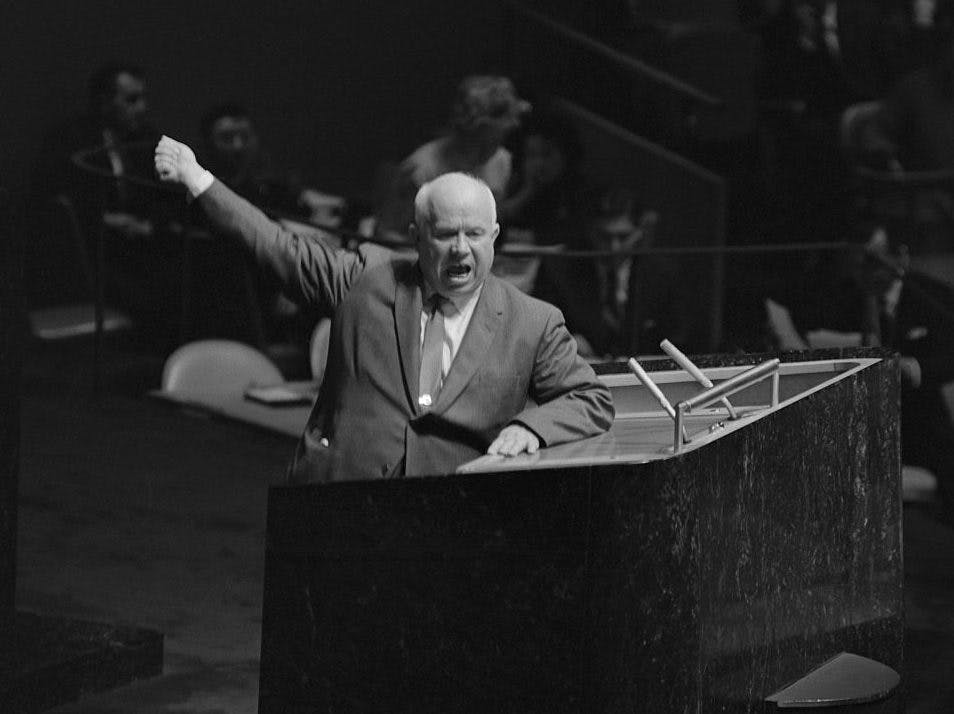
Nikita Khrushchev's speech at the UN General Assembly, 12 October 1960, Russia Beyond.
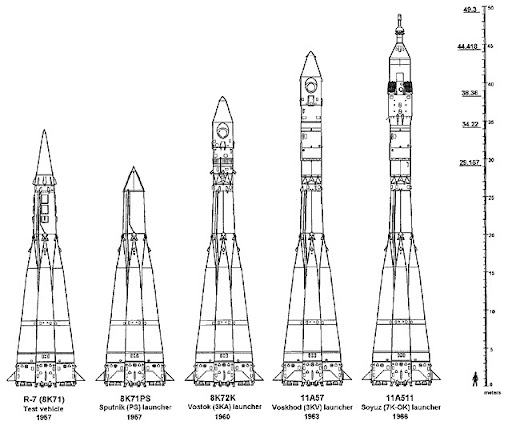
Semyorka, the world’s first Intercontinental Ballistic Missile and a part of Krushchev’s arsenal, Wikipedia.
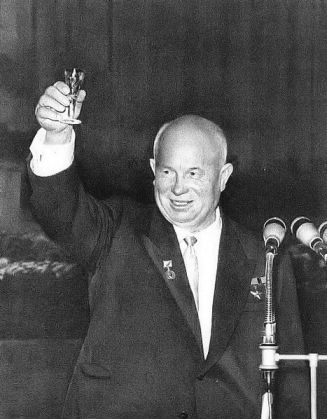
Khrushchev raising his glass, 1959, Daily History Blog.
Concurrently with the UN debates, Khrushchev took advantage of WWIII fears by threatening to send Soviet troops into Egypt and boasting of his vast nuclear arsenal, successfully forcing a withdrawal. Moreover, on October 13th, the USSR vetoed the Security Council’s plan to end the conflict, making the Sévres Protocol unavoidable. In reality, the USSR was unlikely to intervene due to their suppression of the Hungary uprising, and they exaggerated their nuclear prowess.
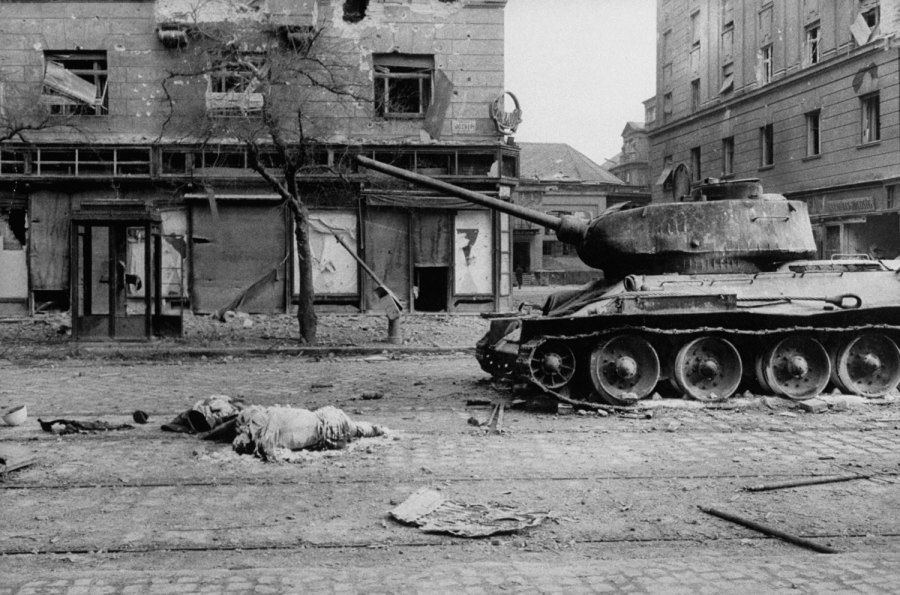
Soviet tank at the Battle of Budapest during the Hungarian Revolution, 1956, Hungary Today.
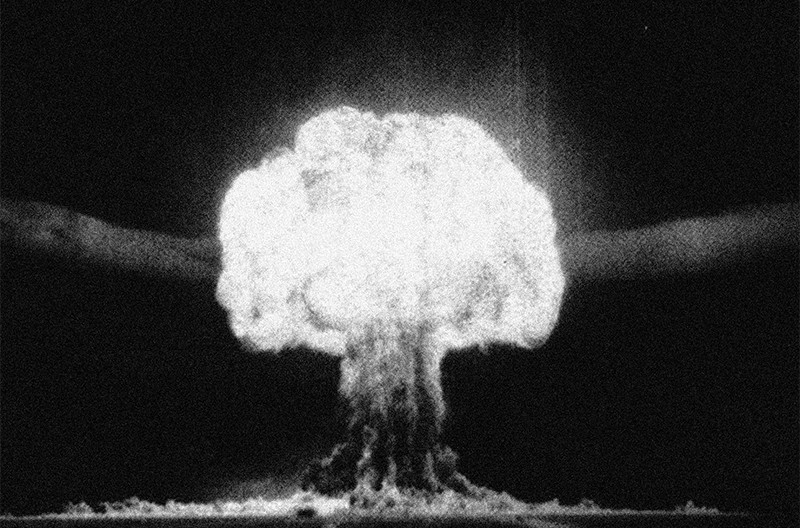
Soviet nuclear bomb detonated on 12 August 1953, Nature.
Dr. Mercogliano: Successful Nuclear De-escalation
Personal interview with Dr. Mercogliano via Zoom on 17 January 2022.
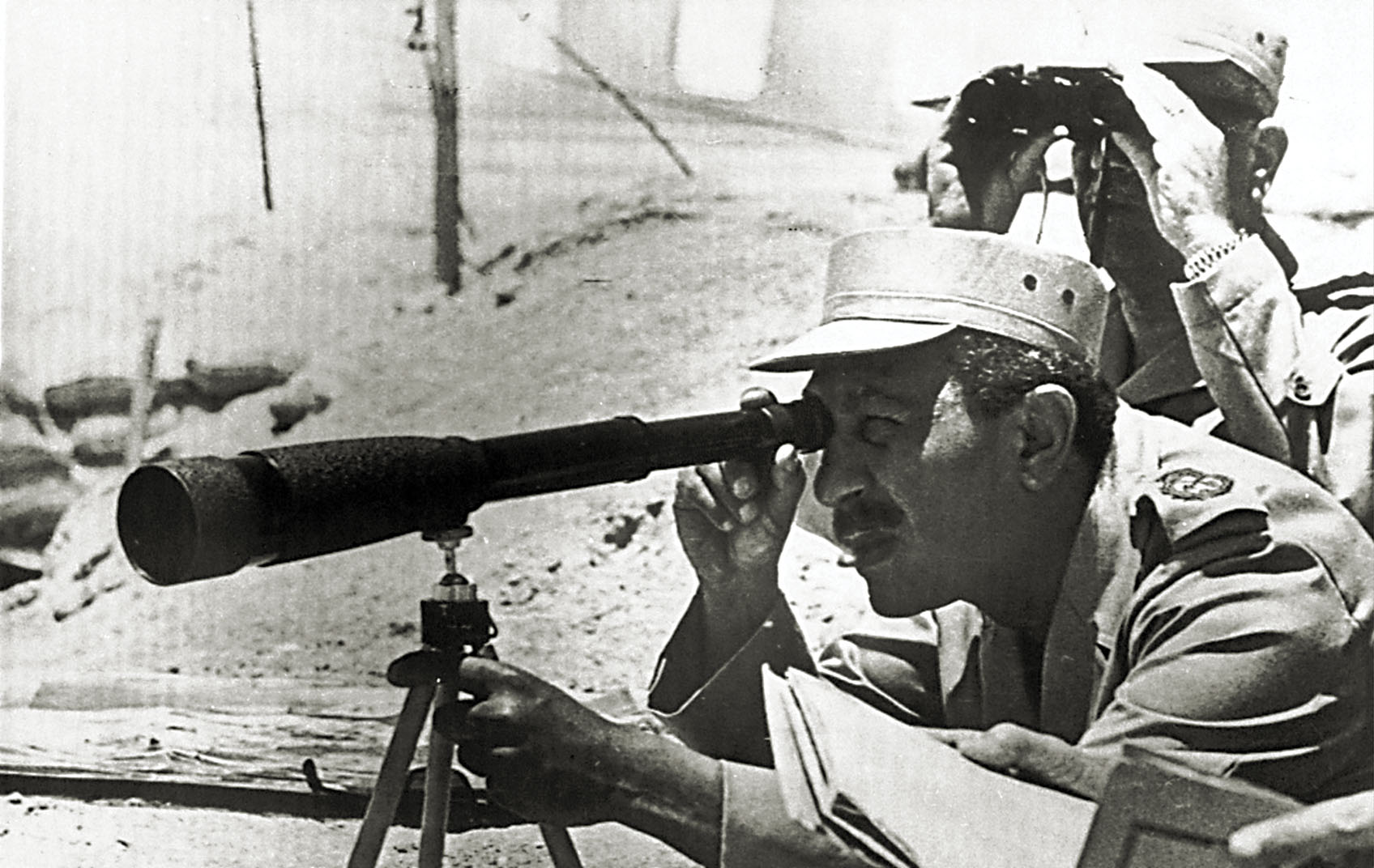
Egyptian President Anwar Sadat observing Israeli Forces on the Suez Canal, History Extra.
“There are only two Great Powers in the world today, the United States and the Soviet Union… The ultimatum put Britain and France in their right place, as Powers neither big nor strong."
~ Anwar Sadat of Egypt, 19 November 1956, Kissinger Diplomacy
